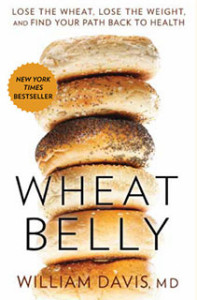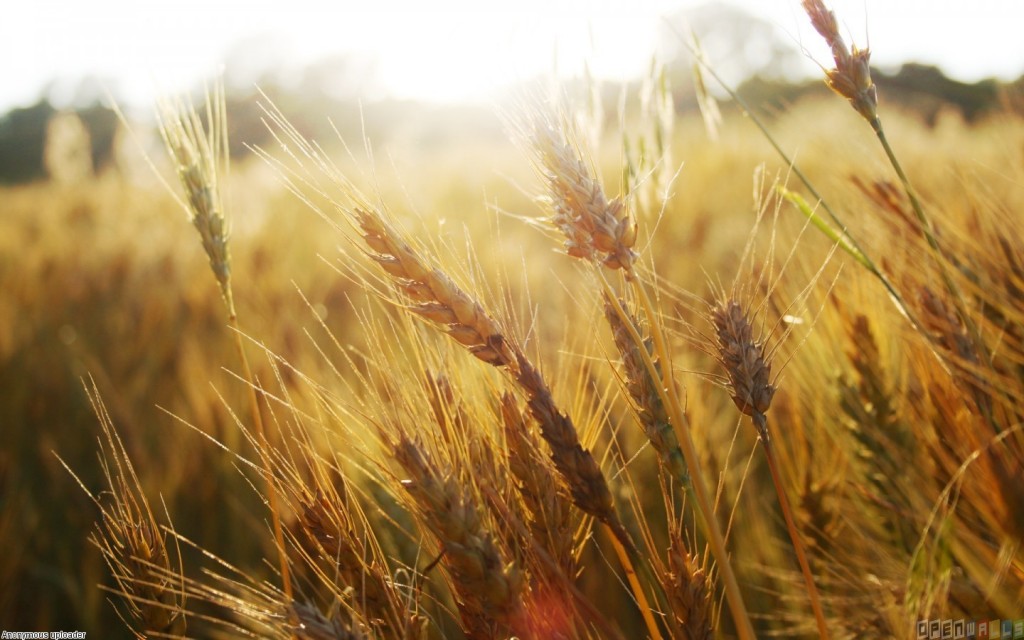In the world of hypothyroidism, diets like Paleo and Gluten-Free seem to be pretty common and many people do find they feel better when they follow those diets… well at least initially.
Many people who stick to a gluten free diet may find that long term, they’ll begin to backslide or find other problems especially since most “gluten-free” foods being offered use bad (in my opinion) substitutes like cornstarch, tapioca starch, potato starch, etc., which we’ll explore later in a different post…
My story…
As some of you may know, I am a home brewer and have been teaching how to brew beer over at Brew Beer and Drink It.
This has given me a very unique perspective on grains such as wheat & barley.
The reason I point this out is because brewing beer helped me understand one simple concept, which has transformed my health… Fermentation is simply a continuation of digestion, or simply stated, Fermentation = Digestion.
For years I personally watched yeast & bacteria eat sugar multiple times while brewing beer… and one day I had my epiphany! Our body is made up of these same exact yeast & bacteria we use to make things like beer, kombucha, sauerkraut, sourdough bread, etc.
I realized that yeast, bacteria, fungus, etc., eat the foods we eat.
 This is why the number one thing I did to improve my health was to start taking probiotics…
This is why the number one thing I did to improve my health was to start taking probiotics…
I began to understand that all the digestive issues I was having because of hypothyroidism were nothing more than poor gut health… my gut flora (probiotics) needed attention and most importantly it needed to be restructured.
I started to feel “Leaky Gut” symptoms and that’s when I started to come across diets like the Paleo Diet and Gluten-Free diet…
… but I didn’t jump into one of these diets because I understood one thing most people don’t when it comes to eating grains (thank you beer for teaching me a thing or two about fermentation)
The problem is not Gluten or Grains…
When I was younger, I remember my mother talk about something that concerned her with the way wheat was being produced… they grew up eating wheat and never had any health problems. It was quite the opposite, their health was great, but the wheat they were eating was a different kind of wheat, “real wheat”.
My mom’s side of the family is from Sonora in Mexico, and they saw first hand what was going on with a thing called The Green Revolution. Basically it was an experiment to CREATE a type of wheat that would grow in any soil regardless of climate…
Now, what stood out, was that the wheat was not something that existed, but rather a wheat variety that was being created.
 So one day I picked up the book Wheat Belly by William Davis and that’s where it clicked…
So one day I picked up the book Wheat Belly by William Davis and that’s where it clicked…
Around page 25 there’s a section on Bad Breeding… I’ll quote a couple things that stood out for me…
It was simply assumed that, because hybridization and breeding efforts yielded plants that remained essentially “wheat”, new strains would be perfectly well tolerated by the consuming public
In other words, animal and human safety testing was never a concern… but here’s where it gets interesting…
Wheat gluten proteins, in particular, undergo considerable structural change with hybridization. In one hybridization experiment, fourteen new gluten proteins were found
Now here’s the kicker from pg 18…
The first wild, then cultivated, wheat was Einkorn, the great-granddaddy of all subsequent wheat. Einkorn has the simplest genetic code of all wheat, containing only fourteen chromosomes….
… sometime in the millenia predating Biblical times, twenty-eight-chromosome emmer wheat (Triticum turgidum) mated naturally with another grass, Triticum tauschii, yielding primordial forty-two-chromosome Triticum aestivum, genetically closest to what we now call wheat.
After reading this and combining what I know about grains from brewing beer I realized one thing… plants are just like our bodies… the health of plants relies in the bacteria (probiotics) at the root of the plant, much like our health relies on our gut flora (probiotics). So think of your gut as the root of a plant…
If your health is not up to par, find the “root cause”!!
Brewing beer taught me a few things about grains which will help understand why traditional cooking and fermentation is the answer we are looking for.
Grains like wheat, barley, oats, etc., need probiotics to grow and become grass. In fact it is that same bacteria that “eats” the seed and what makes it sprout and grow as long as there is is water, minerals and it is aligned with the right temperature and pH (just something I know from brewing beer).
Your body is the same, it grows and regenerates as long as you have the right gut flora, water, minerals, pH, temperature and food source. Note that with hypothyroidism people struggle with low body temperature.
The whole purpose of creating new varieties of wheat was so that certain things like fungus and other “bad bacteria” wouldn’t eat the wheat out in the field… and the result was a new breed that was so hard to digest it would be resistant to rust and fungal disease…
The way I was understanding it was that the gluten in modern day wheat was so strong or maybe just so different that bacteria had a hard time eating it out in the field… and if that was the case out in the field then it would be no different in our bodies since it usually is the same bacteria inside our bodies that digest food.
… but here’s where things become complicated…
… And note that the genetic modifications created by hybridization for the wheat plants themselves were essentially fatal, since the thousands of new wheat breeds were helpless when left to grow in the wild, relying on human assistance for survival.
Hmmm… real wheat, Einkorn, doesn’t have the hard to digest gluten that modern day wheat does and it can survive in the wild on its own and grow naturally and organically…
Meanwhile, the high-yield dwarf hybrid wheat varieties that are most commonly available can’t even survive on their own… how do they survive??
Why Gluten-Free is just a Fad
Even though the new strains of wheat can have gluten that’s hard to digest, it doesn’t mean it is impossible to digest them… you can make Sourdough bread to allow probiotics to pre-digest the bread…
See some people believe that the problem isn’t so much gluten in grains, but rather that the quick-rise preparation method doesn’t allow for it to be pre-digested and we need to go back to the traditional ways of making bread… I’d say go back to traditional cooking in general.
… but there is yet another problem.
Modern day grains have another problem that sourdough doesn’t fix. As I discovered reading the book Wheat Belly, modern day grains need help to survive. The question is, what kind of help??
Glyphosphate
See, you can take modern day grains and soak, sprout or latco-ferment and pre-digest the gluten people seem to be running away from, but there’s still a problem… most wheat crops grow on soils drenched with Glyphosphate.
If you read the article in the link above by Dr Mercola, one thing stands out.
Glyphosate has been shown to severely damage your gut flora and cause chronic diseases rooted in gut dysfunction.
So the problem is still a gut problem… not a gluten problem.
What kind of soil do you think they use to grow things like the corn they use to make cornstarch as a substitute for the so called gluten-free foods??
Now, if those types of grains are bad for your gut health, wouldn’t you think they are bad for an animal’s health??
If you eat chicken or beef from grain fed animals, you are eating meat from animals suffering from similar gut problems and other diseases. Just look at how many antibiotics are used to raise conventional cattle and chickens to produce the food that’s most commonly available.
That’s why going gluten-free is not the real long term solution… I believe the real long term solution is to go back and learn what “real food” is. Go back to using traditional grains like Einkorn and go back to learn traditional cooking methods.
If eating meat, make sure it is pasture-raised (grass fed)… and rather than ask why “real food” is expensive, start questioning why is conventional food so cheap??

